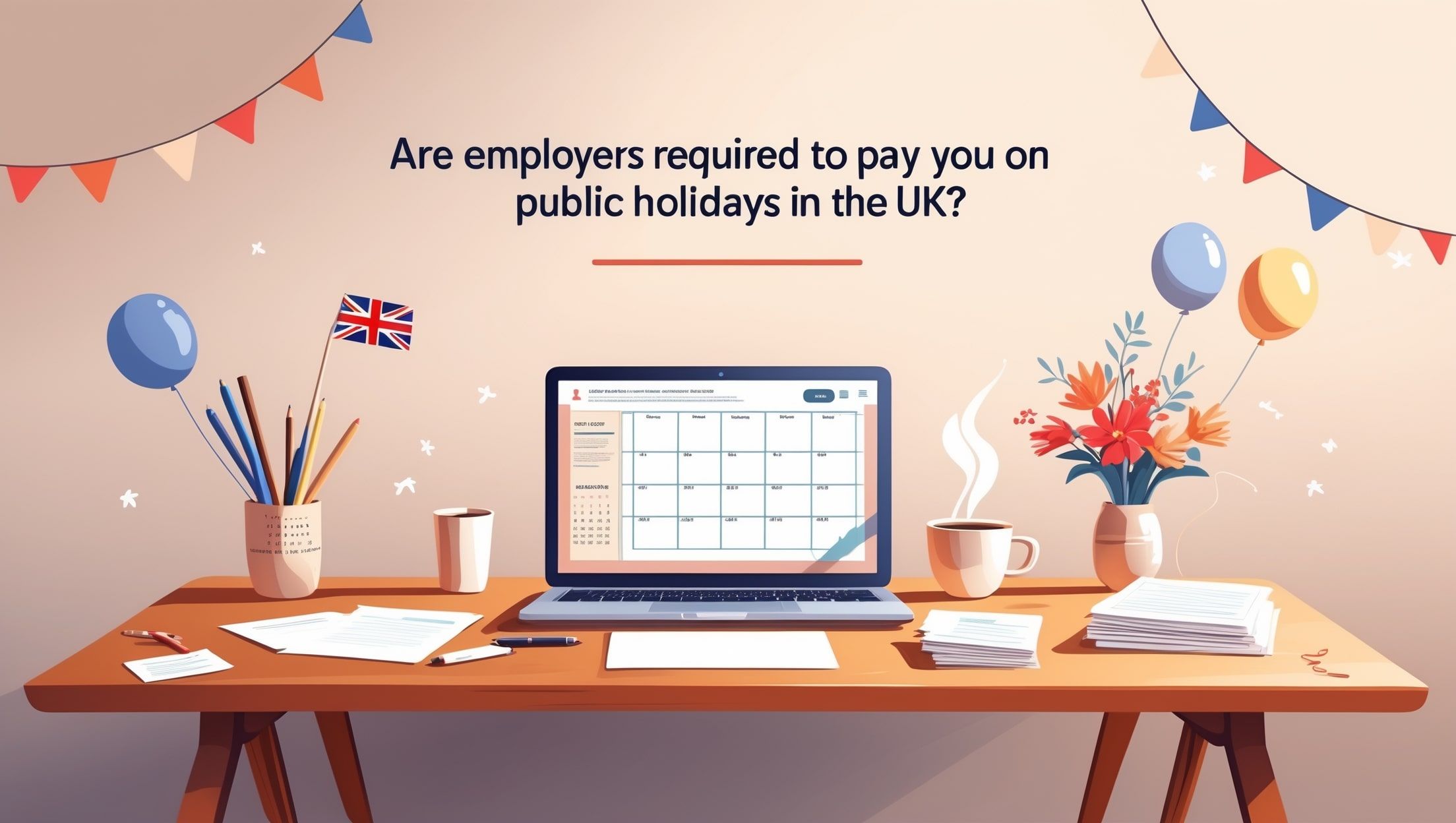Public holidays in the UK, also known as bank holidays, are often seen as guaranteed days off. But when it comes to getting paid for them, the rules aren’t as clear-cut as many people think. In fact, whether you’re paid, or even get the day off at all, depends entirely on what’s in your contract. You can find a list of UK public holidays that might apply to your region to better understand how your schedule could be affected.
What the law actually says
There’s no automatic legal right to be paid for public holidays in the UK. While there are 8 standard bank holidays in England and Wales (and a few more in Scotland and Northern Ireland), the law doesn’t force employers to give those days off, or to pay you for them. Some employers, particularly those operating across multiple countries, may have varied holiday policies depending on local regulations.
The key factor is your employment contract. It might say you’re entitled to time off on bank holidays, or that they’re included in your annual leave. Or it might say nothing at all, similar to how holiday pay can complicate payroll for some companies.
Types of wording you might see in contracts
Your contract could include phrases like:
- "28 days of annual leave including bank holidays" - this means bank holidays are counted within your holiday allowance
- "20 days of annual leave plus bank holidays" - you get bank holidays as additional paid days off
- "20 days of annual leave. Public holidays may be required working days" - no paid day off is guaranteed
The exact phrasing makes a big difference, so it’s worth reading your contract carefully. For employees in international companies, it may even be affected by time zone differences if operations span across borders.
What if you have to work a public holiday?
In some sectors, especially hospitality, retail, transport, and healthcare, public holidays are regular working days. If you’re required to work, your employer doesn’t have to pay extra, unless it’s agreed in your contract or a workplace policy. Employees in global operations sometimes use world clock tools to coordinate shifts during major holidays.
Some employers offer time-and-a-half or double pay, but it’s not a legal requirement. Again, it’s all about what you’ve agreed to when you took the job.
How it works for part-time and shift workers
If you work part-time, you’re still entitled to the same overall holiday rights as full-time workers, but pro-rated. That includes entitlement to paid time off for public holidays, if it’s part of your contract. Part-time staff can also benefit from using digital calendars to manage their shifts and plan around holidays.
If your normal workdays don’t fall on public holidays, your holiday pay entitlement might be added into your annual leave in another way. Employers should treat part-time workers fairly to avoid discrimination.
Where to check if you're not sure
If you’re unsure about your entitlement, check:
- Your employment contract
- Your staff handbook or HR policy
- What’s written in your payslips for bank holiday weeks
You can also ask your HR team or manager for clarification. It’s better to ask than assume, especially if you're planning around a long weekend or using an event planner to schedule activities.
No contract mention? Here's what happens
If your contract doesn’t say anything about public holidays, your employer isn’t legally required to give them as paid time off. They can ask you to work, and they don’t have to offer extra pay. That said, many companies do pay for them, even if it's not in writing, as part of company policy or custom. For instance, some may follow practices similar to UK public holiday pay requirements as a guideline.
Still, without a written agreement, you can’t count on it.
Clear policies make all the difference
In the UK, holiday rights aren’t one-size-fits-all. Whether you get paid for a bank holiday depends on what’s been agreed between you and your employer. If it’s not in writing, it’s not guaranteed. Many HR teams find it useful to refer to how public holidays affect business days when setting internal policy.
So next time a public holiday rolls around, don’t assume you’re owed the day, or the pay. Check your contract first, and make sure you understand how these policies apply to you.









